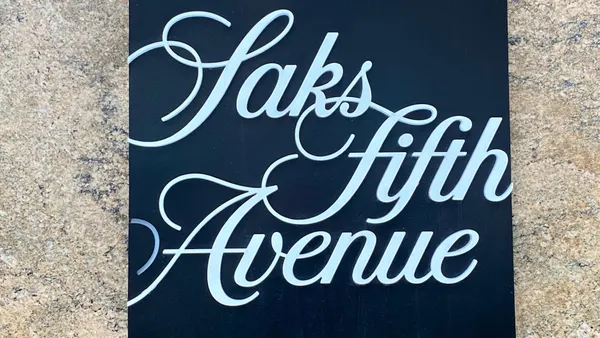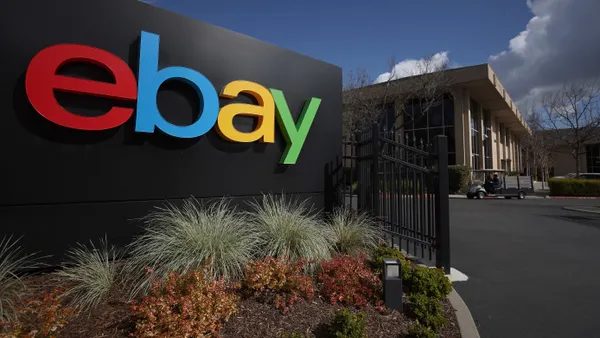Dive Brief:
- By integrating its customer appointment booking procedure with an optimized workflow process that uses voice technology, The Container Store has seen an immediate improvement in its in-store communication, worker productivity and customer engagement, according to a press release from the technology provider.
- The new workforce management solution, announced yesterday, is the product of a partnership between TimeTrade, which provides intelligent appointment scheduling software, and Theatro, the first voice-controlled mobile app platform for the hourly workforce. The Container Store is the first to use this seamless integration which boosts customer satisfaction, the press release said.
- In the past, the retailers' closet designers kept themselves informed of new, same-day or changed consultation requests by keeping an eye on devices, and there was a risk of missing a customer appointment. With the integration of the two technologies, group messages about these appointments are conveyed through ear pieces, speeding up booking notifications and labor allocation decisions.
Dive Insight:
Voice technology is now being used by sales associates at The Container Store to keep updated on closet design appointments. The conversational computing platform from Theatro works together with a smart scheduling solution from TimeTrade to help the retailer and its closet designers manage the chain's approximately 16,000 monthly appointments and decrease the possibility of missing appointments and disappointing customers. This is the first implementation of its kind, the press release said.
Empowering the in-store workforce with technology has become a priority for many retailers, notably with mobile devices. However, a survey from IHL Group and Stratix found that the retailers face challenges such as an absence of proper applications and a lack of staff to help manage the devices. The survey found that 42% said they have mobile devices in-store, but without mobile point-of-sale functions that can be used by store associates.
Walmart dropped its mobile Scan & Go program for customers earlier this year in favor of the Check Out With Me service which provides employees with mobile point-of-sale devices that can ring up purchases and provide receipts. Walmart also is developing 200 employee training centers across the country as part of a $3 billion investment in its workforce. Walmart this month confirmed a test of in-store wireless charging technology for devices like mobile smartphones, electronic shelf labels and wireless barcode scanners in an aim to improve workforce productivity.
The workforce management solution at The Container Store combines the Theatro voice-controlled mobile app, which uses an artificial intelligence-based virtual assistant – similar to Alexa, Siri or Cortana – as an application programming interface (API) with TimeTrade's real-time consultation booking program. Rather than having to track appointments on computers or handheld devices, the information is relayed directly into the ears of store associates, thus improving productivity and customer satisfaction.
Two years ago, in a previous effort to improve workforce management, The Container Store rolled out the Theatro Communicator wearable device chainwide. The voice-controlled device is credit card-sized and WiFi-enabled. It includes applications that facilitate communication between wearables across the enterprise, SKU look-up, employee location tracking, store analytics and other applications.
Last fall, The Container Store reported that its turnaround was gaining traction, in part due to investments in technology. The retailer has been seeking to deliver omnichannel shopping experiences, and was among the first to offer curbside delivery. The company also has taken steps to speed up its website and set a four-part optimization plan to drive improved sales and profitability, including sales initiatives.
The chain opened its next-generation store in Dallas in June, which emphasizes its Custom Closets merchandise and services "as a real focal point, kind of a beacon," said CEO Melissa Reiff in a conference call. Changes at the store include using lower fixtures to improve sight lines, enhanced lighting, updated technology and a refined arrangement of the product assortment, she said.










